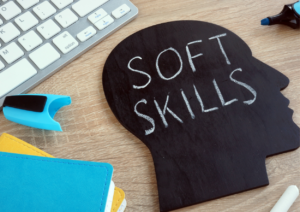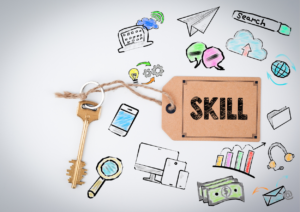In today’s competitive world, academic achievements alone are not sufficient for success. Students must develop various soft skills to thrive both in school and their future careers. Soft skills are non-technical abilities that impact how individuals interact with others, solve problems, and manage their work. This article aims to provide an in-depth understanding of essential soft skills, their importance, and how they can be developed and utilized effectively.
What Are Soft Skills?

Soft skills are personal attributes, personality traits, and communication abilities that are crucial for success in any field. Unlike hard skills, which are technical and specific to a particular job, soft skills are broadly applicable across various roles and industries. They include qualities like communication, teamwork, problem-solving, and adaptability.
Key Soft Skills for Students
Here are the essential soft skills that students need to develop to succeed in both academic and professional settings:
1. Problem-Solving
Problem-solving skills enable students to handle challenging situations effectively. This skill is vital in an unpredictable world where unexpected issues can arise. Students should learn to approach problems methodically, considering various solutions and selecting the most effective one.
2. Creative Thinking
Creative thinking encourages students to think outside the box and develop innovative solutions. It helps them understand complex concepts and view problems from different perspectives. This skill is essential for ideation and innovation, which are crucial in today’s educational and professional environments.
3. Teamwork
Teamwork is the ability to work collaboratively with others towards a common goal. This skill is indispensable in both academic projects and professional settings. Students must learn to value others’ contributions, communicate effectively, and resolve conflicts to ensure productive collaboration.
4. Decision-Making
Decision-making involves making choices within a given timeframe. This skill helps students develop independence and confidence, crucial for personal and professional growth. It includes selecting courses, extracurricular activities, and making everyday choices that shape their future.
5. Intra-personal Skills
Intra-personal skills refer to understanding oneself, including emotional intelligence, self-awareness, and self-regulation. These skills help students recognize their strengths and weaknesses, set personal goals, and manage their emotions effectively.

6. Interpersonal Skills
Interpersonal skills involve understanding and interacting effectively with others. This includes empathy, active listening, and effective communication. These skills are vital for teamwork, leadership, and maintaining healthy relationships.
7. Communication Skills
Effective communication is fundamental for conveying ideas clearly and confidently. This skill is essential for academic success, professional interactions, and personal relationships. It involves verbal, non-verbal, and written communication, along with active listening.
8. Leadership Skills
Leadership skills enable students to inspire and guide others towards achieving common goals. This skill involves decision-making, conflict resolution, and the ability to motivate and manage a team. Leadership experience in school can translate into future career opportunities.
9. Positive Attitude
Maintaining a positive attitude helps students handle stress and setbacks constructively. This skill is crucial for resilience and perseverance, allowing students to remain motivated and focused on their goals.
10. Listening Skills
Active listening involves paying full attention to the speaker, understanding their message, and responding thoughtfully. This skill is essential for effective communication, learning, and building strong relationships.
Why Are Soft Skills Important?

Soft skills play a critical role in personal and professional success. They are essential for:
- Effective Communication: Clear and confident communication is crucial for academic presentations, job interviews, and professional interactions.
- Team Collaboration: Working well with others is necessary for group projects, workplace teams, and community involvement.
- Problem-Solving: The ability to analyze situations and develop solutions is vital for overcoming challenges in any field.
- Adaptability: Being flexible and open to change helps individuals navigate various environments and roles.
- Leadership: Inspiring and guiding others is crucial for achieving common goals and driving innovation.
Developing Soft Skills
Soft skills can be developed through practice, education, and real-life experiences. Here are some practical ways to enhance these skills:
1. Engage in Group Activities
Participate in group projects, sports teams, and extracurricular activities to develop teamwork and leadership skills. These experiences provide opportunities to collaborate, communicate, and resolve conflicts.
2. Take on Leadership Roles
Seek leadership positions in school clubs, student government, or community organizations. These roles help build decision-making, problem-solving, and interpersonal skills.
3. Practice Communication
Enhance communication skills by participating in debates, public speaking, and writing activities. Practice active listening in conversations and strive to articulate thoughts clearly and concisely.
4. Set Personal Goals
Develop intra-personal skills by setting personal goals and reflecting on progress. Self-awareness and emotional intelligence can be improved through mindfulness practices and self-assessment.

5. Seek Feedback
Request feedback from teachers, peers, and mentors to identify strengths and areas for improvement. Constructive criticism helps refine skills and build resilience.
6. Engage in Problem-Solving Activities
Participate in activities that require creative thinking and problem-solving, such as puzzles, strategy games, and innovation challenges. These activities enhance cognitive flexibility and analytical skills.
7. Maintain a Positive Attitude
Cultivate a positive outlook by focusing on achievements, setting realistic goals, and practicing gratitude. Surrounding oneself with positive influences also contributes to a constructive mindset.
Conclusion
Soft skills are indispensable for success in both academic and professional settings. By developing essential skills such as problem-solving, creative thinking, teamwork, and communication, students can navigate challenges effectively and achieve their goals. Parents and educators play a crucial role in supporting students’ efforts to hone these skills, ensuring they are well-prepared for the future. At Ecole Globale Schools, we are committed to fostering an environment where students can develop these vital soft skills, empowering them to excel in all areas of life.
Frequently Asked Question
Q1. Why is teamwork important for students?
Answer. Teamwork is vital for collaborative projects, effective communication, and conflict resolution in both academic and professional settings.
Q2. Why are soft skills important for students?
Answer. Soft skills are crucial for effective communication, teamwork, problem-solving, and adaptability, essential for academic and professional success.
Q3. How can students develop problem-solving skills?
Answer. Students can develop problem-solving skills by participating in activities like puzzles, strategy games, and innovation challenges that require analytical thinking.
Q4. What is the difference between intra-personal and interpersonal skills?
Answer. Intra-personal skills involve self-awareness and emotional regulation, while interpersonal skills involve interacting effectively with others.
Q5. How can students improve their communication skills?
Answer. Students can enhance communication skills by engaging in debates, public speaking, writing activities, and practicing active listening.









